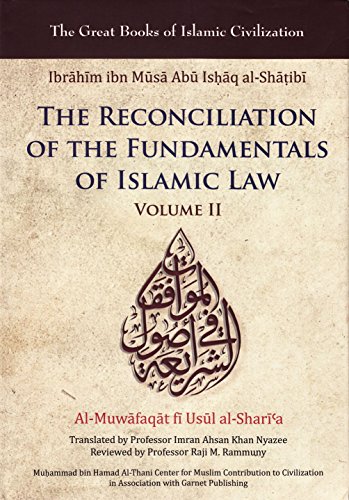

Most ebook files are in PDF format, so you can easily read them using various software such as Foxit Reader or directly on the Google Chrome browser.
Some ebook files are released by publishers in other formats such as .awz, .mobi, .epub, .fb2, etc. You may need to install specific software to read these formats on mobile/PC, such as Calibre.
Please read the tutorial at this link: https://ebookbell.com/faq
We offer FREE conversion to the popular formats you request; however, this may take some time. Therefore, right after payment, please email us, and we will try to provide the service as quickly as possible.
For some exceptional file formats or broken links (if any), please refrain from opening any disputes. Instead, email us first, and we will try to assist within a maximum of 6 hours.
EbookBell Team

4.1
30 reviewsNow available in paperback, The Reconciliation of the Fundamentals of Islamic Law (or Al-Muwafaqat fi Usul al-Shari'), written by Ibrahim ibn Musa Abu Ishaaq al-Shatibi, was and remains an innovation in Islamic jurisprudence (fiqh), since, for the first time, the objectives of shari'a were addressed. The book is an authority in understanding the objectives of the shari'a. This was the first time that the codification of the maqasid, or objectives of the shari'a, was undertaken. It was first published in 1884 in Tunis, and since then it has been a source of inspiration, moderation, and renewal in fiqh. The book, however, deals with much more than the maqasid, and substantial research is needed to unravel its full contribution. This highly skilled, contemporary English translation of the work has been divided into five sections: the fundamental concepts of the discipline * the ahkam (rules) and related concepts * the legal objectives of the shari'a and the ahkam * the comprehensive treatment of the adilla (evidences) * the rules of ijtihad and taqlid. The previously published Volume I (2011) dealt with the first two key sections, and this current paperback edition of Volume II covers the third part, dealing with the objectives of shari'a.